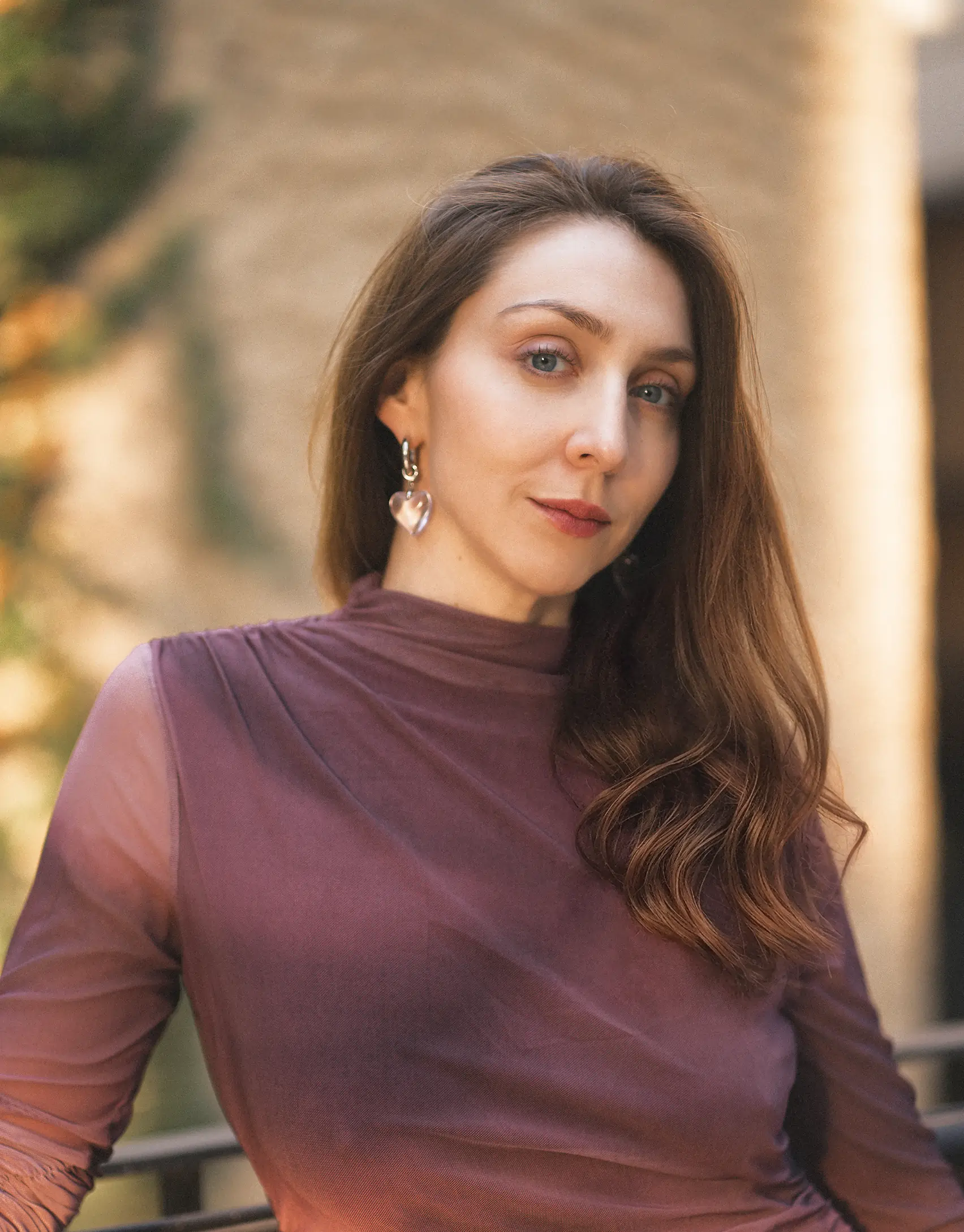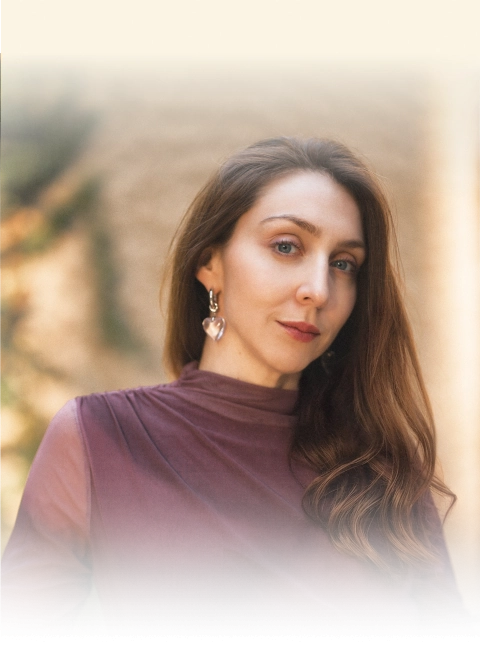
Anastasia Levikova Mental health specialist, death doula


Anastasia Levikova
Emotional support speсialist (ACT, CFT), death doula, supervisor, death&grief educator, writer LGBTQ+ friendly, grief-informed



Emotional support speсialist (ACT, CFT), death doula, supervisor, death&grief educator, writer LGBTQ+ friendly, grief-informed
Are you familiar with:
Relationship problems
Shame and guilt
Procrastination
Intense emotions and
conflicts
Difficulties with
decision-making
Thoughts like
"something is wrong with me”
Loss of purpose
Depressive states
My name is Nastia. I’ve been supporting people for
over 10 years — first as a doctor in
oncology and
hematology, and later as a mental health specialist and death doula.
I work in the field of behavioral psychology, mostly from contextual and trauma-informed
approaches.
I focus on grief, emotional resilience, and how we
relate — especially when
life gets
complicated,
uncertain, or comes undone.
I grew up in Moscow and lived there until I was 27.
Then I moved to the U.S. for a few
years, and later
settled in Ukraine — Odesa became home for a while. After the war began in 2022, I had to leave.
I’ve lived
in
Turkey and Germany, and now I’m based
in Israel, where I’m raising my son.
In 2024, I was diagnosed as autistic — a discovery that brought clarity to many things in my life
and deepened my understanding of neurodivergence, both personally and professionally.

Over 6 years of
experience
as a psychologist*
600 to 1000
consultations per year
Certification
in behavioral approach
Zero reviews
Taking reviews is
against the ethical
code
I graduated from the Pirogov Russian National Research Medical University in Moscow in 2013 with a medical
degree, followed
by postgraduate education in internship and residency.
I did a Master
degree in
psychology in the Odessa National University named after I.I. Mechnikova in 2019-2020.
I work with people
who have been diagnosed with conditions such as C-PTSD, depression, autism, ADHD, chronic pain, and complex or
prolonged grief.
In some cases, I may also suspect an undiagnosed condition
that could be influencing a
person’s emotional
state.
When appropriate, I help navigate the diagnostic process
and offer guidance on consulting with
relevant
specialists.
I enjoy using my experience and knowledge to help others
find answers,
strength, and their
unique path.
Over 6 years of experience
as a psychologist*
600 to
1000
consultations per year
Certification
in behavioral approach
Zero reviews
Taking reviews is
against the
ethical
code
Acceptance and Commitment Therapy (ACT) helps identify meaningful values — and take action in line with
them — while learning to relate differently to difficult inner experiences like anxiety, guilt,
self-criticism,
or grief.
Compassion-Focused Therapy:
An evidence-based therapy focused on developing mindfulness
and
self-compassion skills. It helps with intense shame and self-criticism. Like ACT, CFT
is
part of the
"third wave"
of cognitive-behavioral therapy.
In my work, I combine various techniques and concepts, including Schema Therapy, DBT, IFS, embodiment, Authentic Relating, trauma-informed care, and grief-informed care.
Courage
Love
Curiosity
Mindfulness
Confidence
My goal is to create a safe and accepting atmosphere,
ask helpful questions, and share knowledge
and skills that
help you move toward the life you want, despite internal challenges and external contexts like wars, epidemics,
crises, losses, and death.






People under 16 years old | Anorexia | Bipolar disorder | Alcohol, drug, gambling and other addictions — within the scope of specialized care
Grief - is love with nowhere to go
I want to greet you again and share an important part of my identity — being a death doula.
I first learned about this profession in 2019, when I was pregnant and attending a course for birth doulas. At
the time, I was studying psychology and preparing to work with people facing cancer. I was already thinking a
lot about death — not as an abstract concept, but as a living, complex process.
In truth, the topic of death and grief had been meaningful to me long before that — both personally and
professionally.
At some point, everything came together: I realized what I truly wanted to do — to accompany people through the
process of dying and to support them in their grief. So that death and farewells wouldn't happen the way I had
seen them in hospitals while working as a doctor: surrounded by haste, procedures, and loneliness, with hardly
any room left for genuine human presence.

Who are death doulas?
+
Death doulas emerged in the early 2000s in the USA and UK. One of the founders of the movement, Henry Fersko-Weiss, worked as a hospice volunteer. One of his friends was a birth doula. Henry decided to adapt the concept of doula care to support dying individuals and their loved ones.
Helping define what is important and valuable at the end of life, from planning the final days to discussing fears, regrets, and dreams.


As a psychotherapist, I work with grief that feels prolonged — when it’s been with you for a long time without
bringing relief, or when it’s starting to take a toll on your physical or emotional
well-being.
If this resonates with you, feel free to send me a private message. I’ll be glad to explain how I can support you
— and whether I’d be stepping in
as a doula, a therapist, or both.


«We don’t choose our feelings, so we can’t „allow“ ourselves to grieve»: 9 Questions for a Death Doula
«War not only takes away the right to life but also the right to a good death». Who Are Death Doulas and How They Help Cope with Loss
A Loved One Died by Suicide. A Guide on How to Deal with Grief and Move On
Podcast About Losses
I conduct individual and group supervision
for psychologists and death doulas on the following
topics:
⁃ Grief
⁃ Queer Grief
⁃ C-PTSD
⁃ Complicated Grief
⁃ Grief and
Neurodivergence
⁃ Loss due to suicide or violence
Individual Supervision
60€ | 60 min
Group Supervision
75€ | 80 min
Work format: online, 55 minutes
There are several discounted spots available throughout the year.
70 €
270 ₪
2 300 ₴*
I work with couples and families, especially with these kinds of requests:
– couples going through loss — death or any other kind of separation;
– breakups and divorces that people want to navigate consciously and while staying friends;
– adult children and their parents, when there’s no connection, but a strong wish for genuine and warm
communication.
Work format: online, 90 minutes
80 €
300 ₪
How to Prepare for a Session?
Before the session, I will send you a message with some brief instructions.
You're welcome to
reflect on your request in advance — but if it's hard to put into words, don't worry. We'll explore it
together during the session.
If you're currently taking any medications prescribed by a psychiatrist, please have the names
ready — I’ll need this information.
Therapy Agreement Terms
How Many Sessions Will Be Needed?
The number of sessions depends on your goals and the complexity of your situation. Short-term therapy focused on specific issues often takes 6–12 sessions. Longer, in-depth work may unfold over several months or more. Supportive therapy can continue less frequently, as needed.
How to Know If I Need a Mental health specialist?
I don’t believe that everyone needs a mental health specialist.
But working with one can help you understand yourself better and connect with your true needs. It’s
not the only path — but it’s often a very effective one. Some people come for emotional support,
others for insight and self-exploration, and some for clarity and practical tools.
How Does the Work End?
You can end our work at any time — there’s no need to explain unless you want to. You’re welcome to
let me know during a session or simply via message.
We can also plan a closing session together, to review your progress and gently wrap up our work.
Are You a Psychologist or a Psychotherapist?
You can call me either a psychologist or a psychotherapist — I offer non-medication-based therapy for
a variety of concerns.
In some cases, I collaborate with psychiatrists or medical professionals,
when pharmacological support is part of the process.
My work focuses on you as a person and your unique experience — not just a diagnosis. That said, I
can help you understand potential causes of your condition and refer you to trusted specialists when
needed.
How does a Death Doula and a Mental health specialist differ?
As a death doula, I hold space for you to process a recent or anticipated loss. I offer grounded,
non-judgmental presence and authentic curiosity toward whatever you’re going through — without trying
to change your state or ‘fix’ anything.
You’re welcome to bring up practical matters — such as caring for the body of the deceased, planning a
funeral, creating rituals or memory projects. Sometimes I’m invited into homes to support sorting
through belongings, or to accompany cemetery visits.
Before the session, I will send you a message with some brief instructions.
You're welcome to
reflect on your request in advance — but if it's hard to put into words, don't worry. We'll explore it
together during the session.
If you're currently taking any medications prescribed by a psychiatrist, please have the names
ready — I’ll need this information.